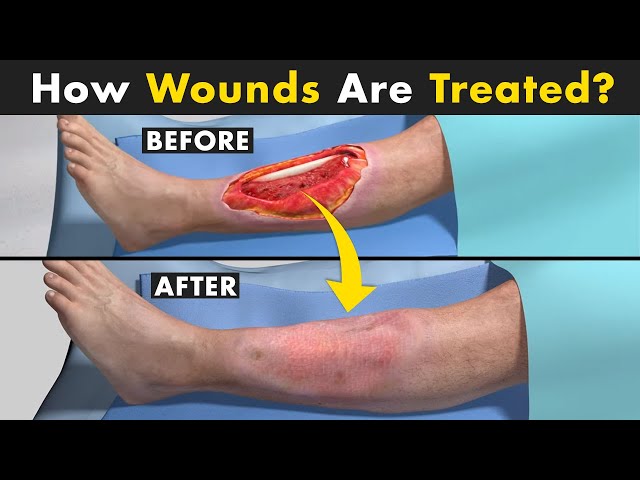Debridement + SSG
Overview
Debridement and Split-Thickness Skin Graft (SSG) is a medical procedure performed to address wounds, injuries, or burns that require removal of damaged tissue and subsequent grafting with healthy skin. This combination of debridement and skin grafting is utilized to promote wound healing and improve functional and cosmetic outcomes. Debridement and Split-Thickness Skin Graft at Indotaj Medical Center provide a comprehensive approach to managing complex wounds and injuries. The skilled healthcare team aims to optimize patient outcomes by combining effective debridement techniques with the transplantation of healthy skin, promoting healing and restoring functionality. Individualized care plans and attentive postoperative management contribute to successful results.

Why it's done
Debridement + SSG treatment may be recommended for several reasons, including:
- Chronic Wounds: Debridement and SSG are utilized for chronic wounds that have not responded to other treatments. This includes venous ulcers, pressure ulcers, and non-healing surgical wounds.
- Severe Burns: In cases of extensive burn injuries where the skin is damaged, SSG helps in replacing lost or damaged skin, promoting faster healing and minimizing scarring.
- Tissue Loss: Traumatic injuries that result in significant tissue loss, such as avulsion injuries or crush injuries, may require debridement and SSG to reconstruct the affected area.
- Diabetic Ulcers: Individuals with diabetes may develop non-healing ulcers on their feet or legs. Debridement and SSG can be employed to facilitate healing and prevent complications.
- Compromised Healing: Surgical wounds with compromised healing, infection, or poor tissue viability may benefit from debridement to remove unhealthy tissue followed by SSG for optimal wound closure.
- Improving Functionality: In cases where tissue loss affects functionality, such as in joint areas, debridement and SSG can contribute to functional restoration by providing structural support and coverage.
- Cosmetic Improvements: SSG can also be performed for cosmetic reasons, such as improving the appearance of scars or correcting aesthetic concerns resulting from trauma or previous surgeries.
- Infected Wounds: Debridement helps in removing infected tissue, reducing the risk of systemic infection. SSG then aids in covering the wound with healthy skin, preventing further infection.
- Pressure Ulcers: Individuals with pressure ulcers, commonly seen in bedridden or wheelchair-bound patients, may undergo debridement and SSG to address the damaged tissue and promote healing.
- Post-Tumor Removal: Following the removal of tumors or cancerous lesions, debridement and SSG may be employed for reconstructive purposes, ensuring adequate coverage and closure.
Risk
Debridement + SSG, like any major treatment, can pose potential risks and complications. Some of these include:
- Infection
- Graft failure
- Bleeding
- Scarring
- Changes in skin color or texture
How do I get ready for Debridement + SSG treatment?
Debridement + SSG treatment involves several steps to ensure a smooth procedure and recovery:
- Schedule a consultation with the healthcare team at Indotaj Medical Center. During this appointment, the medical team will assess your specific condition, review your medical history, and discuss the details of the planned procedure.
- Complete any pre-operative medical evaluations or tests as advised by your healthcare provider. This may include blood tests, imaging studies, or other diagnostic assessments to ensure that you are in optimal health for the procedure.
- Inform your healthcare provider about all medications you are currently taking, including prescription medications, over-the-counter drugs, and supplements. Your healthcare provider will guide you on which medications to continue or discontinue before the procedure.
- If you smoke, consider quitting or reducing smoking before the procedure. Smoking can adversely affect wound healing and increase the risk of complications. Your healthcare provider can provide guidance on smoking cessation.
- Ensure a well-balanced and nutritious diet leading up to the procedure. Adequate nutrition supports the healing process. If necessary, your healthcare provider may recommend specific dietary guidelines or nutritional supplements.
- Maintain good hygiene practices to reduce the risk of infection. Follow any instructions provided by your healthcare provider regarding preoperative skin care and bathing.
- Wear comfortable and loose-fitting clothing on the day of the procedure. Avoid wearing tight or restrictive clothing around the area where the debridement and SSG will be performed. Bring personal items such as a change of clothes and toiletries for postoperative care.
- Arrange for transportation to and from the medical center on the day of the procedure. You may not be in a condition to drive or use public transportation immediately after the surgery.
- Follow any fasting instructions provided by your healthcare provider. Typically, patients are instructed not to eat or drink for a specific period before the procedure, especially if general anesthesia will be administered.


